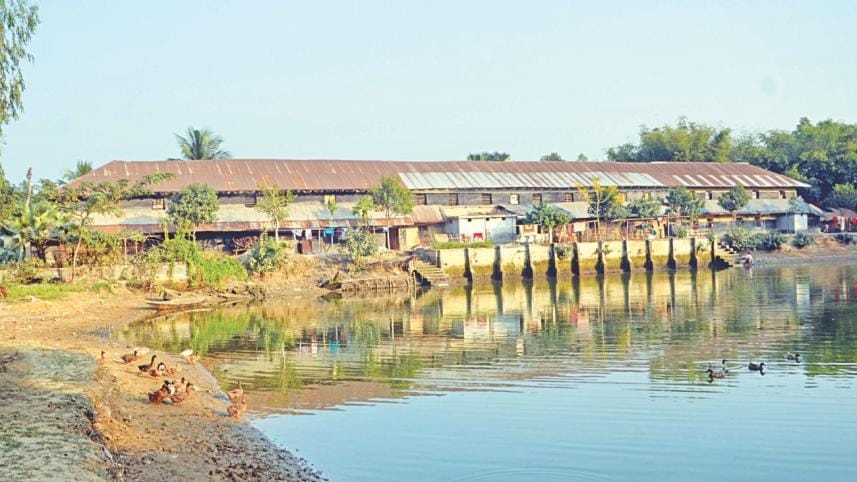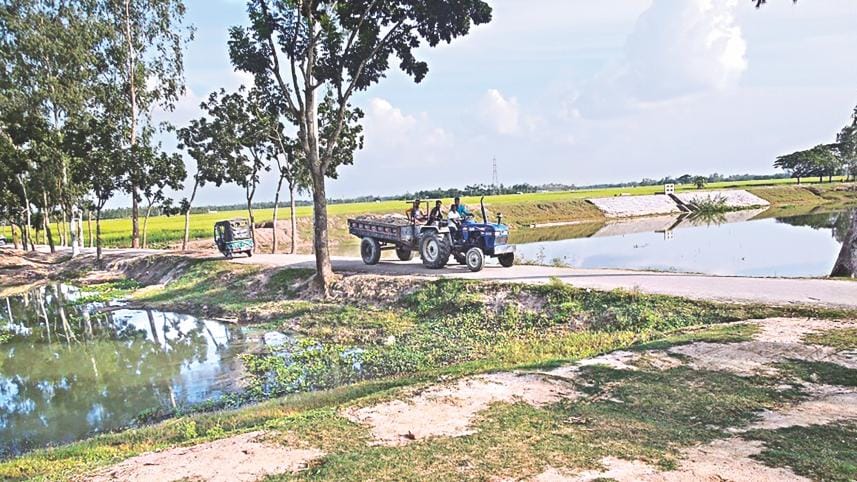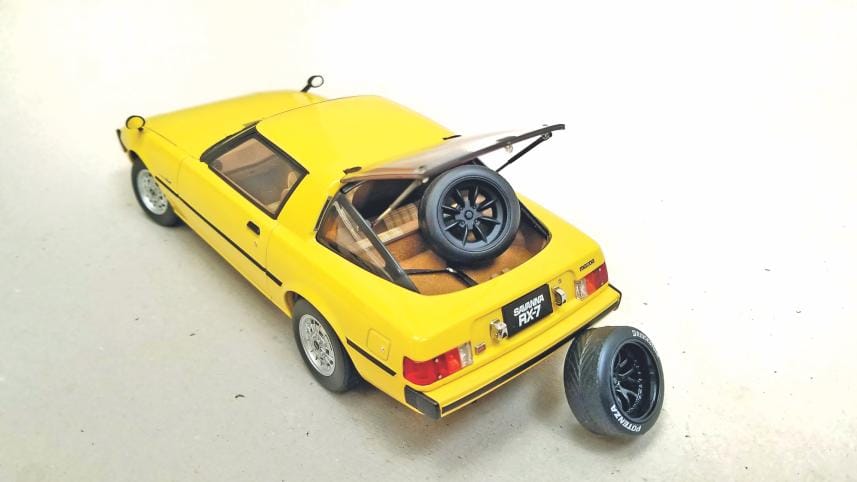Mud house with 108 rooms

Mud houses are not uncommon in rural Bangladesh but they don't have 108 rooms like the one at a Naogaon village.
Built in 1986 by some well-off land owners, the two-storied house stands on an acre in Alipur village under Mohadevpur upazila.
While char dwellers like corrugated-iron-sheet houses for easy shifting during flood and erosions, affluent people in dry regions preferred mud houses before concrete started making a splash. Mud houses are eco-friendly and are cool during the summer.
There are many mud houses in remote villages of the Barind region. The one in Alipur village, seven kilometres from Naogaon's Nohata intersection, stands apart with its enormous size.
Those who built the house as a hobby are Shamsher Ali Akanda, Taher Ali Akanda and their brother-in-law Taser Uddin Mondol.
The house is 300 feet long and 100 feet wide, has 11 main entries, and 12 staircases to go to the first floor. The roof is made of corrugated iron sheets and there are rectangular spaces between rooms.
Shamsher's son Azahar Ali Akanda said his ancestors engaged hundred labourers and also got their hands dirty to build the house.
It took seven months to complete.
“They collected mud from cropland on the east side of the house,” he said, adding, “They did it out of pleasure. They thought their sons and daughters would live in it together.”
They used bamboo, wood, and straws mixed with mud for the walls and floors. For the roof, they used 200 bundles of corrugated iron sheets collected from several shops, according to Azahar.
Since the demise of Akandas and Mondols, families of eight of their sons have been living in the house, said Cheragpur Union Parishad Chairman Shibnath Mishra.

Although many tourists visit the house every year, the heirs, for whom it was built, have hurt its grandeur whilst dividing it among themselves with walls.
“Before one could go to any room through any of the main doors but now the successors have built mud or concrete walls at places,” Azahar told The Daily Star.
During a recent visit, this correspondent saw some inheritors erecting concrete walls and placing tiles. Some were putting red mud and white lime on the floors and walls for preservation.
Taher's son Masud Rana said he brought some changes with concrete and tiles because repairing with mud was difficult. “The mud repair process needs expertise and time. We don't have that.”

Azahar's wife Reshma Begum said, “My in-laws had strong aesthetic sense. But their inheritors hardly understand it. I frequently repair my portion.”
The residents now use some rooms for storing harvests and some as guest rooms. “All the rooms are used someway. The 20-inch walls keep us cool in summer and warm in winter,” said Reshma.
Sometimes the house moves when someone walks on certain parts on the first floor, she added.
Upazila Nirbahi Officer Mobarak Hossain said they were working to protect the mud house considering its tourism value.

 For all latest news, follow The Daily Star's Google News channel.
For all latest news, follow The Daily Star's Google News channel.
Comments